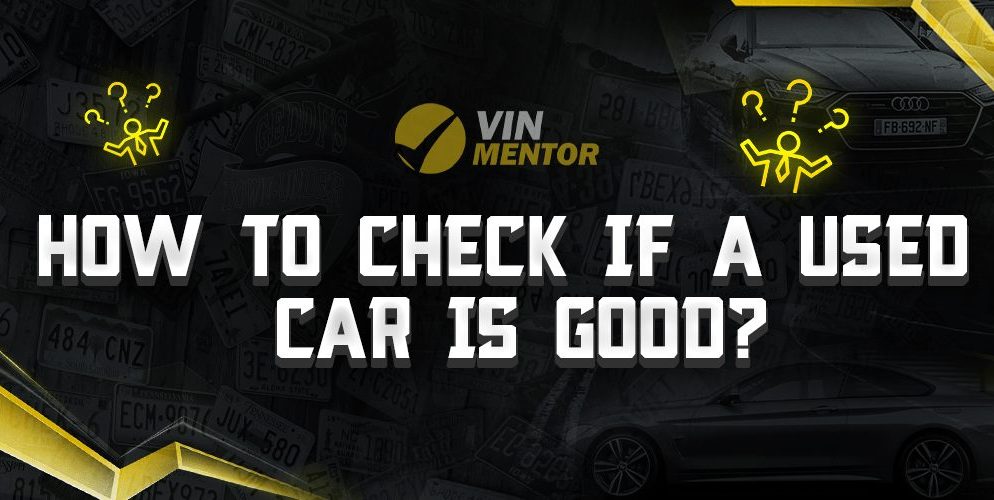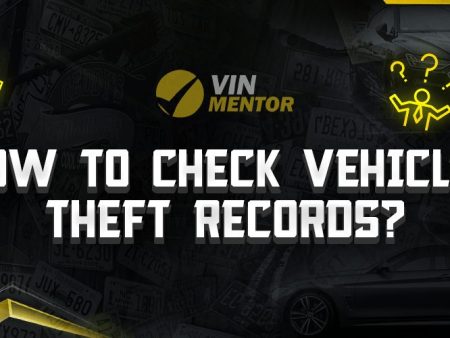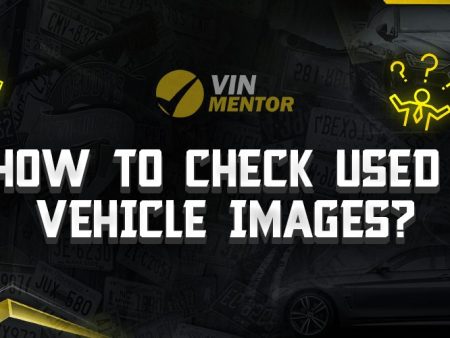

Buying a used car can be a smart financial decision. However, it can also be a daunting task, especially for those who are not well-versed in the automotive industry. It’s important to take the time to research and inspect a used car thoroughly before making a purchase. So, how do you check if a used car is good? In this article, we’ll explore several key steps you can take to determine the condition of a used car, and ensure that you are making a wise investment.
Key Takeaways
- Research the make and model of the car before purchasing.
- Take the car for a test drive and pay attention to any unusual noises or sensations.
- Check the car’s history report, including any accidents or repairs.
- Have a trusted mechanic inspect the car before making a purchase.
- Consider the car’s overall condition and any potential future maintenance costs.
What are the Steps to Determine Whether a Used Car is in Good Condition?
There are steps you can take to check if a used car is in good condition before making a purchase. In this guide, we’ll take you through five key steps to help you evaluate a used car’s reliability and performance. From researching the car’s make and model to having a mechanic inspect it, these steps will help you make an informed decision and avoid any costly surprises down the line.
Step 1: Research the Make and Model
Before even looking at a used car, it’s important to research the make and model. Look for reviews, ratings, and consumer reports online to gain insight into the car’s reliability and performance. Some car models are known for specific issues, such as faulty transmissions or frequent mechanical problems. By doing your research beforehand, you can identify any red flags and narrow down your options to more reliable cars.
Step 2: Test Drive the Car
The test drive is a crucial step in determining the condition of a used car. Take the car on both city streets and highways to get a sense of its performance in various driving conditions. Pay attention to any unusual noises or sensations, such as a rough idle or vibrating steering wheel. These could be signs of underlying issues with the car’s engine or suspension.
Step 3: Check the Car’s History Report
A car’s history report can provide valuable information about its past, including any accidents or repairs. Many dealerships and private sellers will provide a history report for free, but if not, you can purchase one online from various companies. Look for any red flags, such as multiple accidents or a salvage title, which could indicate serious damage to the car.
Step 4: Have a Mechanic Inspect the Car
Even if the car seems to be in good condition, it’s always a good idea to have a trusted mechanic inspect it before making a purchase. A mechanic can identify any underlying issues with the car’s engine, transmission, or other systems that may not be immediately visible to the untrained eye. This can save you from costly repairs down the line and give you peace of mind knowing that you’re making a wise investment.
Step 5: Consider the Car’s Overall Condition
Finally, consider the overall condition of the car. Look for signs of wear and tear, such as worn tires or rusted body panels. Check the car’s fluid levels and inspect the engine bay for any leaks or loose parts. Consider any potential future maintenance costs, such as replacing the timing belt or brakes. By taking a comprehensive approach to inspecting the car, you can ensure that you’re making a wise investment.
Using the VIN to Check a Car’s History
One of the most important steps in checking the condition of a used car is to review its history report. The easiest way to do this is by using the car’s Vehicle Identification Number (VIN). The VIN is a unique 17-digit code assigned to each car, and it contains important information about the car’s history, such as its year, make, and model, as well as any accidents or repairs.
To obtain a car’s history report using the VIN, you can visit the various VIN Check websites. Simply enter the VIN into the website’s search bar, and the report will provide a comprehensive overview of the car’s history. This can include information about any accidents, repairs, or maintenance performed on the car, as well as any title transfers or recalls.
It’s important to note that not all accidents or repairs may show up on a car’s history report, so it’s still important to take a comprehensive approach to inspecting the car before making a purchase. However, reviewing the car’s history report can provide valuable information and help you make an informed decision about whether or not to purchase the car.
In addition to using the VIN to check a car’s history report, you can also use it to ensure that the VIN on the car matches the one on the paperwork. This can help prevent potential fraud or issues with the car’s title down the line.
Conclusion
When it comes to buying a used car, taking the time to research and inspect the car thoroughly can help you make a wise investment. By researching the make and model, test driving the car, checking the car’s history report, having a mechanic inspect the car, and considering the car’s overall condition, you can ensure that you are getting a reliable car that will last for years to come. To check a car’s history, you can choose a VIN check service from our list of recommended VIN Check Websites.
Remember, buying a used car is not just about finding the cheapest option available, but rather finding a car that is in good condition and meets your needs. By following these steps and using the VIN to check the car’s history report, you can make an informed decision and avoid any potential pitfalls down the line.
FAQ
What should I look for during a test drive of a used car?
During a test drive, you should pay attention to any unusual noises, vibrations, or sensations while driving the car. Additionally, you should test the brakes, accelerator, and steering to ensure they are functioning properly.
How important is it to have a mechanic inspect a used car before purchasing it?
Having a trusted mechanic inspect a used car before purchasing it is highly recommended. A mechanic can identify any underlying issues with the car that may not be immediately visible to an untrained eye, potentially saving you from costly repairs down the line.
What is a car’s history report, and why is it important to review it before purchasing a used car?
A car’s history report provides valuable information about its past, including any accidents, repairs, or maintenance performed on the car. Reviewing the report can help you identify any potential red flags and make an informed decision about whether or not to purchase the car.
What should I do if a car’s history report shows that it has been in an accident?
If a car’s history report shows that it has been in an accident, it’s important to carefully consider the extent of the damage and any potential repairs that may have been made. Additionally, you may want to have a mechanic inspect the car to ensure that any repairs were done properly.
Can I trust the information provided in a car’s history report?
While a car’s history report can provide valuable information, it’s important to note that not all accidents or repairs may show up on the report. Additionally, some reports may contain errors or incomplete information. As a result, it’s important to take a comprehensive approach to inspecting the car before making a purchase.












